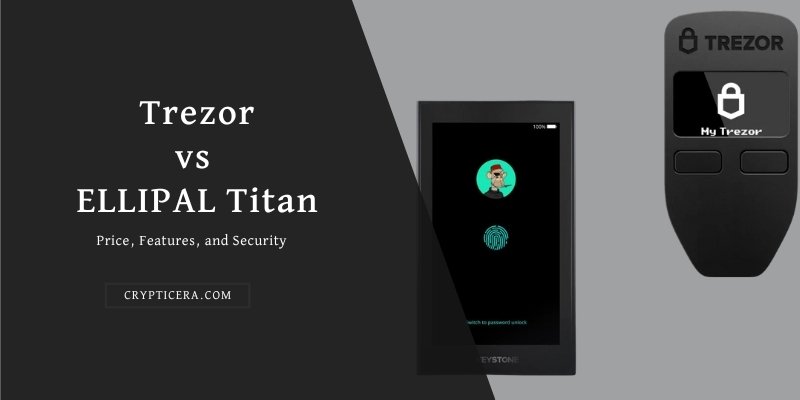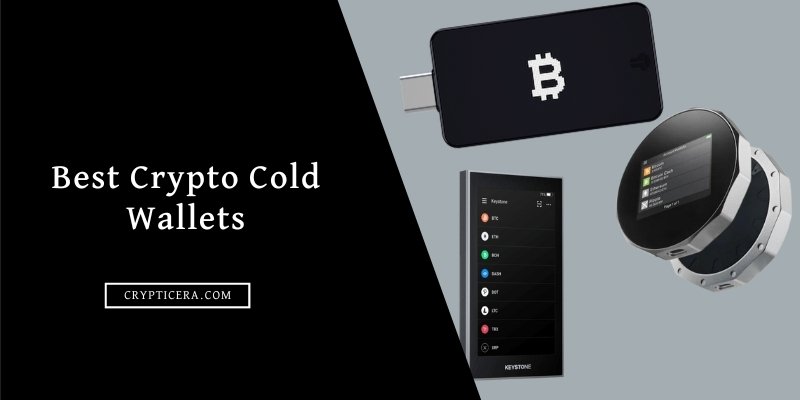Cryptocurrency has revolutionized the world of digital transactions, and as the market expands, so does the need for secure storage of digital assets.
Hardware wallets have become a popular solution for securing cryptocurrencies, and two of the most well-known devices are Trezor and ELLIPAL Titan. Both are highly rated in terms of security and user-friendliness, but which is the better option?
Learn more about the best hardware wallets on the market and which you should choose between Trezor vs ELLIPAL Titan.
Key Takeaways:
- Both offer strong protection for your digital assets, but ELLIPAL Titan’s air-gapped feature and QR code scanning make it slightly more secure than Trezor’s 2FA and passphrase options.
- Trezor supports over 1400 cryptocurrencies, while ELLIPAL Titan supports 10,000+ currencies on 51+ blockchains. If you need to store a wide variety of digital assets, ELLIPAL may be the better option for you.
- ELLIPAL Titan’s 4-inch color touch screen is larger and more user-friendly than Trezor’s OLED screen.
- Trezor is open-source, meaning that its code is publicly available and can be reviewed by anyone for security purposes.
Trezor vs ELLIPAL Titan: Key Differences
| Features | Trezor | ELLIPAL Titan |
|---|---|---|
| Type | Hardware wallet | Hardware wallet |
| Security | 2FA, passphrase, seed, PIN | Air-gapped, QR code scanning |
| Compatibility | 1000+ cryptocurrencies supported | 10,000+ cryptocurrencies supported |
| Display | OLED screen | 4-inch color touchscreen |
| Battery | – | 1800mAh rechargeable (up to 8 hours) |
| Connectivity | USB, Bluetooth | USB, QR code |
| Size | 60mm x 30mm x 6mm | 118mm x 66mm x 9.9mm |
| Price | $69 to $209 depending on model | $79 to $139 depending on model |
| Ease of use | User-friendly interface | Simple and intuitive |
| Open-source | Yes | No |
| Customer support | Email and knowledge base support | Email and phone support |
| Mobile app | Yes, compatible with only Android | iOS and Android |
| Durability | Aluminum case with scratch-resistant touchscreen | Metal case with IP65 waterproof rating and shatter-resistant screen |
| Backups | 12-24 word recovery seed | 12-word recovery phrase |
| Multi-signature | Yes | No |
| Trezor Review | ELLIPAL Titan Review |
Trezor: Best Bitcoin Cold Wallet
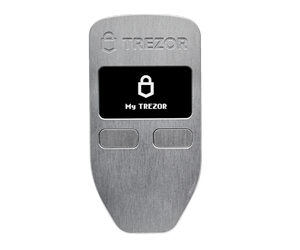
Trezor is a hardware wallet created by SatoshiLabs, a Czech Republic-based company founded in 2013. It was one of the first hardware wallets on the market and has been a trusted name in the industry for years.
The device is small and lightweight, making it easy to carry around. It has a monochrome OLED display and two buttons for navigation.
Trezor is open-source software, which means that the code is freely available to the public. This makes it easier for developers to audit the code and ensure that there are no backdoors or security flaws.
ELLIPAL Titan: Air-gapped Hardware Wallet
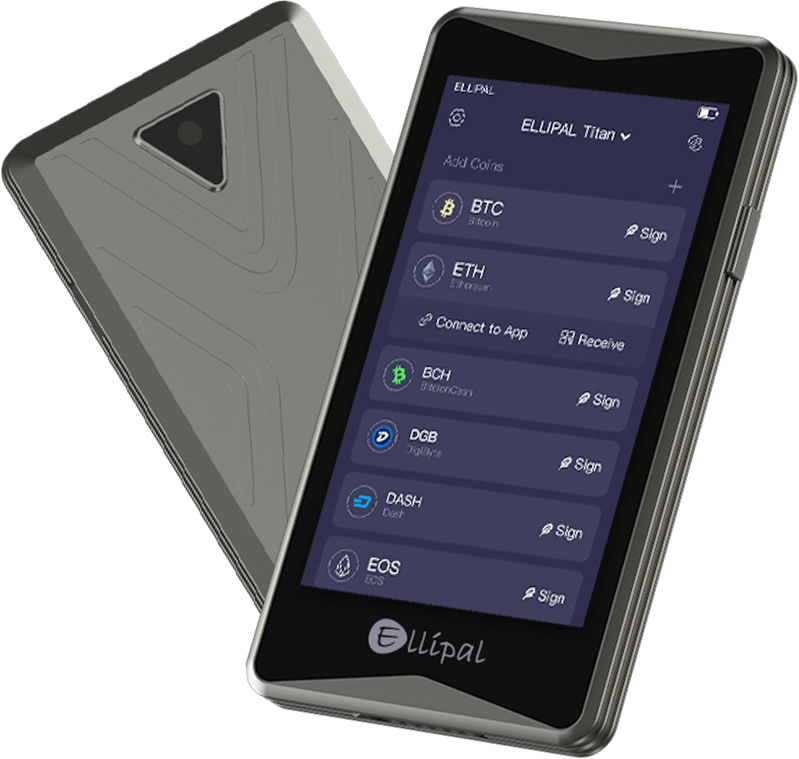
ELLIPAL Titan is a hardware wallet created by ELLIPAL Limited, a Hong Kong-based company founded in 2018.
The device has a sleek, modern design and is larger than Trezor. It features a 4-inch touchscreen and a rugged, waterproof case. The ELLIPAL Titan also has a built-in camera for QR code scanning.
ELLIPAL Titan works on 100% air-gapped technology (No Bluetooth, No wifi, No NFC, No cellular). This means that the device is completely disconnected from the internet, providing an extra layer of security against potential hacks.
Comparison between Trezor and Ellipal Titan
When it comes to the number of supported cryptocurrencies, ELLIPAL Titan is the clear winner. However, it’s important to consider other factors like security, ease of use, and price before choosing a hardware wallet. Let’s compare all similarities and Differences-
1. Design
Trezor has a simple and compact design that makes it easy to carry around. It has a small OLED screen and two buttons that are used to navigate the device.
It is available in two models: Trezor One and Trezor Model T. The Trezor One has a plastic casing, while the Model T has a more durable metal casing.
ELLIPAL Titan has a unique and rugged design that sets it apart from other hardware wallets. It has a large, round touchscreen display that is easy to read and navigate.
The wallet is encased in a military-grade metal shell that provides additional protection against physical damage.
2. Security
Trezor uses a variety of security features to keep your digital assets safe. It has a PIN code system that must be entered every time the device is used, and it uses a secure chip to protect against physical attacks.
It also supports multi-factor authentication, which provides an extra layer of protection against unauthorized access.
ELLIPAL Titan uses a unique air-gapped system to keep your cryptocurrencies safe. It also has a secure chip and supports 2FA.
3. Compatibility: Supported Cryptocurrencies
Trezor supports over 1,400 cryptocurrencies, including Bitcoin, Ethereum, Litecoin, and many more. The Trezor Model T supports more cryptocurrencies than the Trezor One.
ELLIPAL Titan supports over 10,000 cryptocurrencies, including BTC, ETH, SOL, and ADA. It also supports a wide range of ERC-20 and BEP-2 tokens.
4. Pricing
When it comes to pricing, Trezor is more affordable than ELLIPAL Titan. Trezor’s basic model, the Trezor One, costs around $65, while the Trezor Model T costs around $180. ELLIPAL Titan, on the other hand, costs around $169.
5. User Interface
Trezor has a simple and easy-to-use interface. It uses a combination of buttons and the OLED screen to navigate through the wallet’s menus and settings. Its interface is available in several languages, making it accessible to a wide range of users.
ELLIPAL Titan has a larger and more intuitive touchscreen display, making it easy to navigate and operate. The wallet’s interface is also available in several languages, making it accessible to a wider audience.
6. Customer Support
Trezor offers excellent customer support, with a comprehensive FAQ section, online user manuals, and email support.
ELLIPAL Titan also offers good customer support, with a detailed FAQ section, user manuals, and email support. They also offer live chat support for urgent issues.
Related:
- ELLIPAL Titan vs Keystone Pro
- SafePal vs Trezor vs ELLIPAL vs Ledger
- ELLIPAL vs Ledger Nano X
- SafePal vs ELLIPAL Titan
- Safepal S1 vs Trezor One
- Best Custodial Crypto Wallets
Advantages and Disadvantages Compared
Pros of Trezor
- Well-established and reputable brand
- Simple and easy-to-use interface
- Supports a wide range of cryptocurrencies
- Good customer support
- Affordable pricing for the Trezor One model
Cons of Trezor:
- Smaller screen size compared to ELLIPAL Titan
- Limited storage capacity on the Trezor One model
- No Bluetooth for the Trezor One model
Pros of ELLIPAL Titan:
- Large and intuitive touchscreen display
- Supports a wide range of cryptocurrencies and tokens
- Durable and rugged design
- Longer warranty period than Trezor
- Mobile app available for both Android and iOS devices
Cons of ELLIPAL Titan:
- Higher price point compared to Trezor One
- No Bluetooth, NFC, and Celluar
Alternatives to Consider
SAFEPAL S1
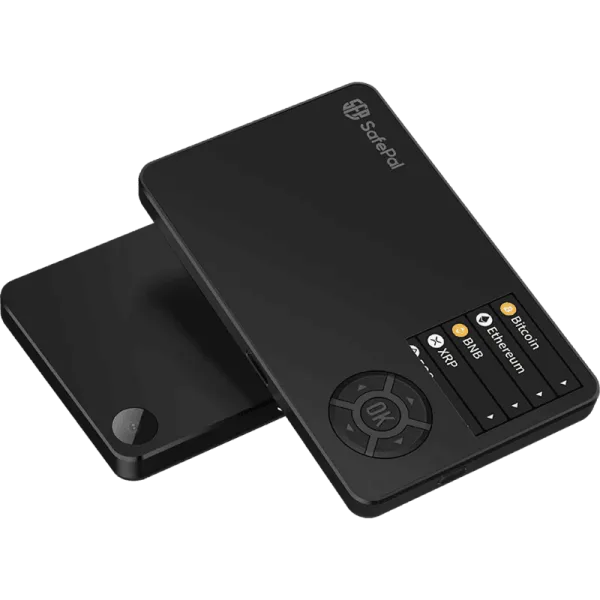
- QR Code Transaction Signing
- Portable and Affordable
- No Bluetooth, No NFC, No Wifi, highly secure
- Unlimited Tokens on 54+ blockchains
ELLIPAL Titan

- 100% air-gapped cold wallet
- Easy Portable with a screen size of Just 4 inch
- Camera for QR Code scanning
- Supports 10,000+ crypto coins and 51 blockchains
Conclusion
Both Trezor and ELLIPAL Titan are excellent hardware wallets that offer a high level of security and compatibility. Choosing the right one depends on your personal preferences and needs.
If you prefer a simple and compact design, and you’re looking for a wallet that supports only high market cap cryptocurrencies, Trezor is an excellent choice. However, if you want a wallet with a better design and a larger touchscreen display, and you need support for a wider range of tokens, ELLIPAL Titan is the better choice.
Whichever wallet you choose, make sure to follow best practices for storing and securing your cryptocurrencies to ensure that your digital assets remain safe and secure.
FAQs
Can I use both Trezor and ELLIPAL Titan for storing my cryptocurrencies?
Yes, you can use multiple hardware wallets to store your cryptocurrencies. This provides additional redundancy and protection against hardware failures or other issues.
What happens if I lose my hardware wallet?
If you lose your hardware wallet, you can recover your funds using the recovery seed phrase that you were provided with when you set up your wallet. Make sure to keep this seed phrase in a safe and secure location.
Are there any other hardware wallets I should consider?
Yes, there are many other hardware wallets on the market, including Ledger Nano S and Nano X, SafePal S1, and Keystone Pro. It’s a good idea to research and compare several options before making a decision.
